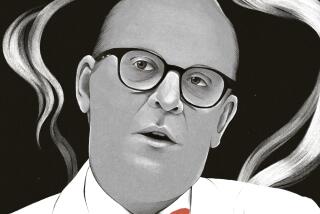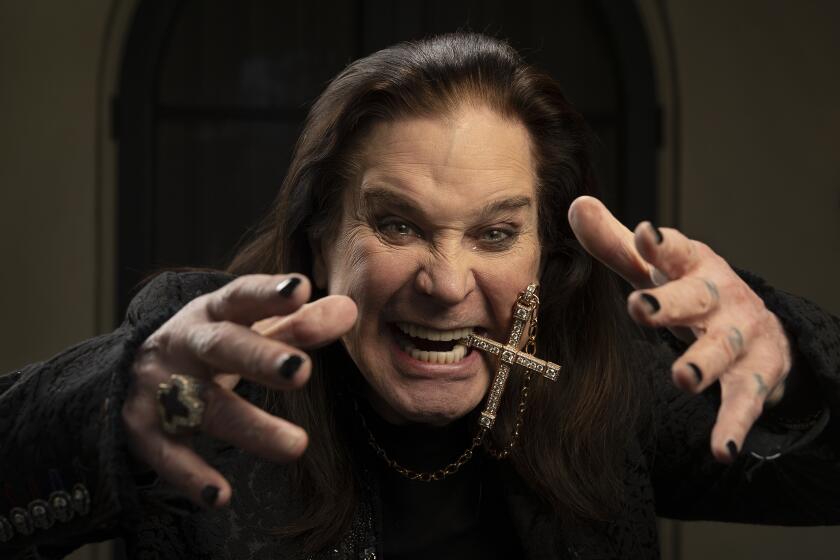Movie review: ‘Hey Boo: Harper Lee and “To Kill a Mockingbird” ’
- Share via
Many books and films have partisans who insist their works are loved and admired by the American people, but “To Kill a Mockingbird” is the real thing.
The Harper Lee novel, winner of the Pulitzer Prize, has sold nearly 50 million copies in the 50 years since its publication. And when the U.S. Postal Service recently issued a stamp honoring “Mockingbird” star Gregory Peck, it used a still from that Oscar-winning performance as its image.
But what of Nelle Harper Lee, the young Southern writer from Monroeville, Ala., whose reaction to all this success, she said in a radio interview, was one of “sheer numbness, being hit over the head and knocked cold.” What has happened to her? Why hasn’t she given any interviews since 1964 or written any other novels since this remarkable success?
Writer-director Mary McDonagh Murphy addresses these questions and others in her documentary “Hey, Boo: Harper Lee and ‘To Kill a Mockingbird.’” Though it’s more than a little awestruck and feels padded even at 82 minutes, the story it tells remains completely fascinating.
One reason for this is that filmmaker Murphy has scoured the Earth for people close to Lee to interview. She talks to the author’s 99-year-old sister, Alice, and to Michael and Joy Brown, friends in New York.
It was the Browns’ spontaneous gift of a chunk of money that enabled Lee to take a year off to work on the manuscript, initially called “Atticus,” that became, after two further years of rewrites overseen by her patient editor, “Mockingbird.”
The genesis of the book, however, was further back, in Lee’s childhood in Monroeville as the daughter of A.C. Lee, a progressive lawyer, state legislator and newspaper editor who was indisputably the model for Atticus Finch.
And the documentary points out that, as a boy, Truman Capote lived next door to the Lees for several years and was the model for the book’s Dill Harris character.
Capote was an important mentor to Lee, and she returned the favor by helping him do the research for the book that became “In Cold Blood.” The two drifted apart after Lee won the Pulitzer Prize and Capote did not. Capote’s jealousy, says sister Alice, was the cause.
Much of “Hey, Boo” is taken up with interviews with celebrities who are fans of the book and who give their thoughts as well as read selected passages. These folks include a raft of Southern writers (Lee Smith, Rick Bragg, Allan Gurganus, among others) and apparently randomly selected well-known figures such as Tom Brokaw, Rosanne Cash, Scott Turow, Oprah Winfrey and Andrew Young.
As is to be expected, these interviews vary in interest and quality, but only James Patterson manages to put in a plug for his own books.
As to why Lee stopped writing when she did, the film mentions the sorrow of a pair of deaths in her family plus an understandable reluctance to follow such a classic. “I haven’t anywhere to go but down,” she told a cousin, and lovers of the book would find it hard to argue with that sentiment.
More to Read
The biggest entertainment stories
Get our big stories about Hollywood, film, television, music, arts, culture and more right in your inbox as soon as they publish.
You may occasionally receive promotional content from the Los Angeles Times.











